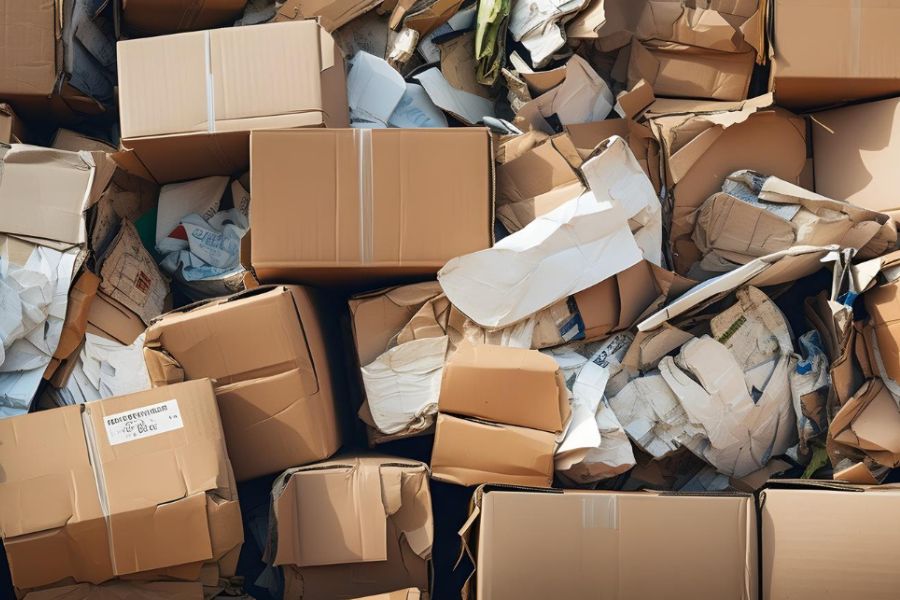11 Dec 2024

Tired Earth
By The Editorial Board

Proposed in late 2022, an overhaul of the EU’s packaging waste rules (PPWR) was informally agreed on late Monday (4 March). The law aims to cut packaging by 15% until 2040 while restricting single-use plastic packaging for sauces like mayo and cosmetics.
“For the first time in an environmental law, the EU is setting targets to reduce packaging consumption, regardless of the material used,” said Belgian EU lawmaker Frédérique Ries, who negotiated the deal on behalf of her liberal Renew group.
Packaging is a €370 billion business in Europe. In the past ten years, Europeans produced 25% more waste and were on track to produce another 19% more by 2030 – resulting in a quarter ton of waste per citizen.
Aside from the overarching target, a 5% reduction by 2030 is the first step, the agreement features product-specific restrictions. From 2030, fruit and vegetables may no longer be wrapped in single-use plastic, nor may luggage be shrink-wrapped at airports. Plastic sauce cachets will also be banned, while their paper counterparts will be permitted.
This distinction meant the deal was “pragmatic,” said EU lawmaker Peter Liese, who coordinates the centre-right EPP in matters of environment and hails from Germany.
PFAS, colloquially known as “forever chemicals”, will be banned from packaging that comes into contact with food.
“The ban on forever chemicals in food packaging is a great victory for the health of European consumers,” said Delara Burkhardt, the centre-left S&D’s negotiator who similarly hails from Germany.
The law, which has yet to be formally adopted, must be greenlit by the European Parliament’s plenary assembly and EU countries. Traditionally, this is a formality, but with EU elections looming, it is far from guaranteed.
Some EU countries have also publicly voiced their discontent with the agreed deal.
“There is still work to be done on bans for some single-use packaging,” said Gilberto Pichetto, Italy’s environment minister, adding that “negotiations are ongoing while waiting for the final text” after the agreement had been struck.
Lobby trench warfare
Few European laws have been lobbied as intensively – or publicly – as the EU’s new packaging rules. Visitors flying into Brussels were subject to banner advertisements intended for two-digit figure lawmakers working on the law. In Berlin, fast-food chain McDonald’s booked massive subway ads intended to play down their contribution to waste production.
“Despite facing severe opposition from the packaging industry, the S&D Group persevered to secure a majority in support of this crucial regulation,” says Burkhardt.
In practice, the paper and food industry secured a key concession: reusable packaging won’t be mandatory – just 10% of menus must be offered in reusable containers.
“Recycling and reuse are also treated equally in the agreement. After all, reusable does not automatically have to be the best thing for the environment,” explained Liese.
Other politically sensitive types of packaging were similarly excluded from reuse targets.
That includes products like wine, flexible packaging – a widely used ultra-thin compound wrap composed of plastic, aluminium and other materials that are nearly impossible to reuse or recycle – and cardboard.
Beyond that, EU countries may delay the implementation of re-use targets for 2030 and 2040 by five years, provided they perform above average on recycling. Micro-enterprises are similarly exempted.
Deposit return schemes all over Europe
Perhaps most visibly, the EU’s new packaging law will bridge a European divide between countries with a deposit return scheme for plastic bottles and cans and those without.
Countries like Italy and Spain, which currently do not have deposit return schemes, will have to adopt them until 2029 to achieve the 90% target for returns of plastic bottles and drink cans.
Adopting a return scheme is not mandatory, provided countries get their collection rate to 80% in 2026 – although this seems a tall order for Rome, where the collection rate sits solidly below 50%.
Source : euractiv.com
Comment